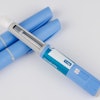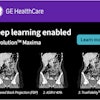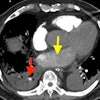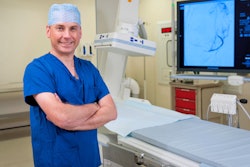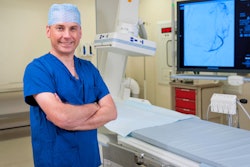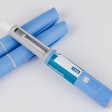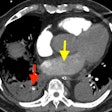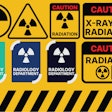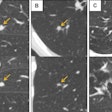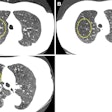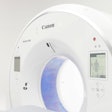When I was learning my trade as an interventional radiologist, decisions seemed easy. I did what my supervising consultants told me to do. Shall I put a stent in this vessel, undertake this aneurysm repair, do this embolization? These were easy questions, with the same easy answer. If the boss says do it, then do it.
Along with this simplicity came an easy and beguiling belief that I was doing the right thing -- by my patient, by wider society, and by my profession. The challenges were technical. Was I a good enough operator to do the procedure well? Could I establish a rapport with the patient sufficiently for them to trust me to do it? Was there a complication and if so, what had I learned from it? Nuances of hand-eye coordination, positioning, device selection, and team management all developed within this context. This was the "cutting well" part of the old surgical adage: "Choose well, cut well, get well."
 Dr. Chris Hammond from Leeds, U.K.
Dr. Chris Hammond from Leeds, U.K.
As I approached the end of my training, and in the early years of my consultant practice, "cutting well" became a given, or at least enough of a given that my complication rates did not raise concerns amongst my colleagues. I was definitely not the most skilled, patient, or creative practitioner, but I was (and I hope remain) hard-working, conscientious, and reflective – sufficiently so to be welcomed as a productive member of the team.
My experience grew, and the technicalities of the procedures became easier as conscious expertise became subconscious. But the work became more difficult without the safety blanket of a supervising colleague. "Choosing well" was complicated. The more I read the literature, the more difficult this task became and the less sure I was that my choice was correct. How does the literature I've read represent this patient? Is my interpretation of it right or have I got the wrong end of the stick? What about the literature I haven't read? Should I stent this vessel? Use this device? Treat this patient? These decisions increasingly became a cognitive battle with myself: in the outpatient department, when vetting referrals, or (worse still) in the middle of a procedure.
But I still felt secure that the wider perspective was that I was doing good work. I was helping my patients and contributing to the health of the society in which I live. My patients seemed happy after their interactions with me. My outcomes were satisfactory, and I was respected by colleagues for my clinical decision-making. I felt fulfilled, important, and imbued with purpose and professional value.
I continued reading and attending conferences and symposia. I started peer reviewing. And like watching a play or reading a novel, I became increasingly familiar with the characters and the wider professional landscape. And slowly but surely doubt insinuated itself into my thinking. What were the motivations behind this publication? Why did they choose this study design, outcome measure, or results interpretation over that one? Are there vested interests and who do they serve?
The more my knowledge and experience grew, the more I became worried that 'choosing well' not only applied to some patients but also to whole classes of procedure. Does the evidence justify us doing this procedure at all? And if it does, is the size of the effect sufficient for me to be clear I am helping this patient, with all the accompanying personal and professional satisfaction?
It's hard to maintain the hubristic illusion of the brilliant life (or limb) saver as the number needed to treat (NNT) creeps up. If the NNT is 10, which of the 10 patients are you helping? Which are you harming? In which does it make no difference at all? What does treating this patient mean for that patient? Those patients? Everyone? I felt my identity was a house of cards, ready to collapse at any moment -- like a priest losing his faith as he questions the relevance of theology the more of it he reads.
I wondered if I was experiencing burnout, but I remained able to empathize with my patients, perhaps more so than before. I spent longer with them, discussing the uncertainties, my uncertainties, about the right thing to do. I think our shared decision-making got better. I was not exhausted or mentally drained, but I did feel a gnawing anxiety about the cognitive gap opening between my thinking and where I had come from.
As I enter what is likely to be the final decade of my practice, I am burdened with a deep sense of uncertainty about my chosen specialty and about technocratic medicine in general. We rarely ask the questions I am increasingly preoccupied by: What is technologically advanced healthcare for? Who benefits? What can we afford and what do we choose to afford? Why? Is nudging someone from one survival curve to another slightly shallower curve sufficient reason to undertake an intervention? I belatedly realize the specialist literature of my field often fails to consider these big issues, rather focussing on the issues of technique and narrowly defined benefit. Worse when faced with broader questions -- Why? What for? So what? -- they are frequently framed or perceived as a threat.
Where does this leave me? Does this realization make me wise or a dreary cynic? A sensible counsel to the exuberance of my more youthful colleagues or a curmudgeonly Luddite or technophobe to whom all progress is anathema? I shall leave it to those who know me to answer those questions. But it seems to me essential that we engage with questions about why. Until we do, we risk some of modern therapeutic medicine becoming elegant technique in search of a disease.
Dr. Chris Hammond is a consultant vascular radiologist and clinical director for radiology at Leeds Teaching Hospitals NHS Trust, Leeds, U.K.
The comments and observations expressed herein do not necessarily reflect the opinions of AuntMinnieEurope.com, nor should they be construed as an endorsement or admonishment of any particular vendor, analyst, industry consultant, or consulting group.



